Most people think constantly. Very few examine how they think. There is a difference between reacting to the world and actually observing it. Much of our daily thinking is automatic—learned, repeated, rarely questioned. Phrases like:
- “That’s normal.”
- “Everyone does that.”
- “That’s just how it is.”
often sound like conclusions, but they’re usually inherited patterns. They feel like observations, yet they’re often just habits of mind.
Automatic thinking is efficient but it narrows perception Automatic thinking conserves energy. It helps us orient quickly and function without questioning everything. That’s its strength. The problem begins when it becomes the only lens through which we interpret reality.
- When behavior is judged without context.
- When difference is treated as a problem.
- When familiar explanations replace curiosity.
At that point, we’re no longer observing, we’re repeating.
A simple example
In a classroom, a quiet student is often labeled “well-behaved.” A restless student is labeled “disruptive.” It seems straightforward. But it’s an interpretation, not a fact. hodný. Neklidný student jako problémový.
A reflective perspective opens other possibilities:
The quiet student may be disengaged but has learned not to draw attention. The restless student may need a different way to participate. The behavior might be a response to the environment, not a fixed personality trait. The situation hasn’t changed. Only the question has. Instead of: “What’s wrong with him?” the question becomes: “What’s happening here?”
The shift is small. The impact is significant.
Why reflection feels uncomfortable
Reflective thinking requires admitting we might be wrong. It challenges certainty. It reveals that what seems obvious may rest on incomplete information. That can feel destabilizing. Old patterns are fast and familiar; reflection is slower and less predictable. People hold onto automatic conclusions not necessarily because they’re accurate, but because they’re known.
The cost of unexamined patterns
When thinking remains mostly reactive: assumptions turn into “truths”, truths shape reactions, reactions reinforce assumptions.
A closed loop forms, not intentionally, but gradually. And a person can become very certain about something they’ve never actually examined.
Reflection isn’t overanalysis
Reflective thinking doesn’t mean analyzing everything all the time. It means occasionally pausing when something feels obvious and asking:
What am I assuming right now? What else could be true? Where did this conclusion come from?
These questions don’t change reality immediately. They change how we read it. And over time, that shift influences decisions, communication, and relationships.




